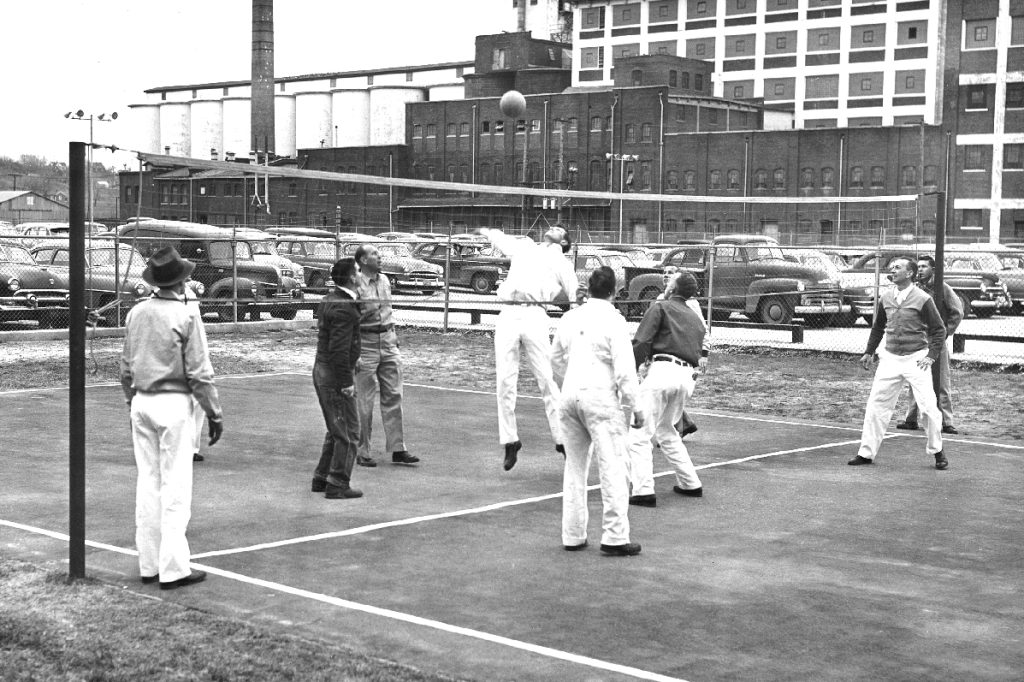Volleyball, a sport synonymous with sun-soaked beaches and gymnasiums bustling with energy, has roots that many might find surprising. The journey from its origins as ‘Mintonette’ to the globally recognized sport of Volleyball is a tale filled with evolution, passion, and innovation. Let’s delve into this transformation.
The Birth of Mintonette
It was the winter of 1895 in Holyoke, Massachusetts, when William G. Morgan, a YMCA physical education director, sought to create a new game. Looking for an activity that was less physically demanding than basketball but equally engaging, Morgan designed ‘Mintonette’. It combined elements from tennis, handball, and even the net from badminton.
The Naming Evolution
While ‘Mintonette’ was the initial name, it didn’t stick for long. During a demonstration game, an observer named Alfred Halstead noted the volleying nature of the sport. This observation led to the name ‘Volley Ball’. Over time, the space disappeared, and the name became the succinct ‘Volleyball’ we know today.

Rules, Nets, and Ball Dynamics
The early rules and equipment of Mintonette were different from modern volleyball. The net was 6 feet 6 inches high (contrasting with today’s standard of 7 feet 11 5/8 inches for men and 7 feet 4 1/8 inches for women in international competitions). Over time, as the game became more athletic and competitive, the rules evolved, and the ball’s design changed to better suit the game’s dynamics.
Spreading Its Wings
By 1916, the game had undergone multiple changes. The offensive style of setting and spiking was introduced in the Philippines, adding an element of thrill. The sport began to spread its wings, reaching Canada in 1900, and subsequently to Asian and European countries. By 1924, Volleyball made its first demonstration at the Summer Olympics in Paris.
Formation of FIVB
In 1947, the Fédération Internationale de Volleyball (FIVB) was established, solidifying Volleyball’s place on the global stage. This body was instrumental in streamlining rules and promoting the sport internationally.
Beach Volleyball: A Fresh Spin
In the 1920s, the shores of Santa Monica, California, saw the emergence of a variant – Beach Volleyball. With teams of two players on each side, this form provided a fresh spin and became immensely popular. Its inclusion in the 1996 Atlanta Olympics bolstered its global reputation.

Volleyball Today
From its humble beginnings in a Massachusetts YMCA to its status as an Olympic sport, Volleyball’s journey is emblematic of innovation and evolution. Today, it boasts of a huge global following, professional leagues, and players who have risen to celebrity status.
Volleyball Through The Ages: Key Milestones
| Year | Milestone |
|---|---|
| 1895 | Inception of ‘Mintonette’ by William G. Morgan |
| 1896 | Name changed to ‘Volley Ball’ |
| 1900 | Volleyball introduced in Canada |
| 1924 | First demonstration at the Summer Olympics, Paris |
| 1947 | Establishment of FIVB |
| 1964 | Volleyball’s debut in the Tokyo Olympics |
| 1996 | Beach Volleyball included in the Atlanta Olympics |
Conclusion
From the wooden floored gymnasiums of Massachusetts to the sandy beaches of California, and further to grand arenas worldwide, Volleyball’s journey is nothing short of spectacular. It stands as a testament to how a simple idea, combined with innovation and passion, can evolve into a phenomenon loved by millions.
Read Also: A Comprehensive History of Tennis

